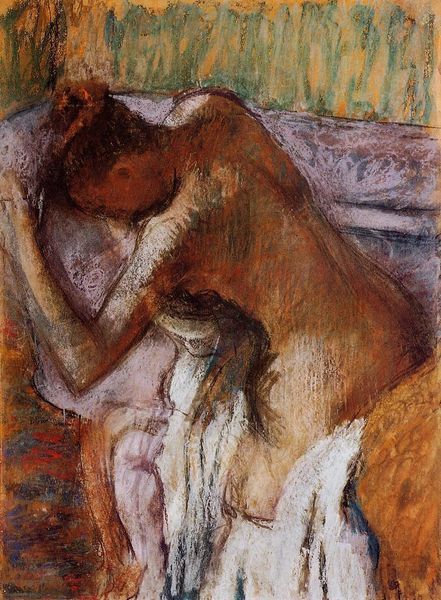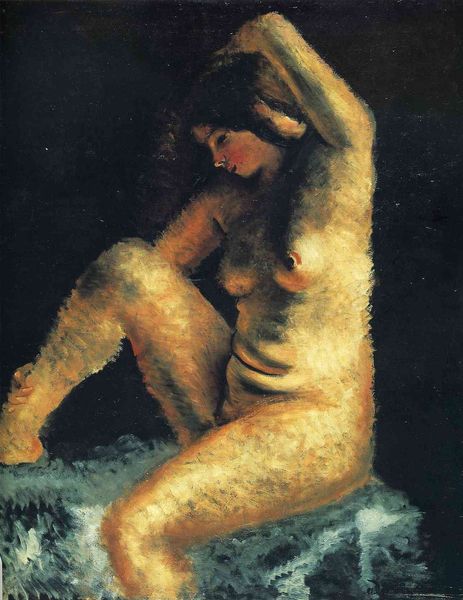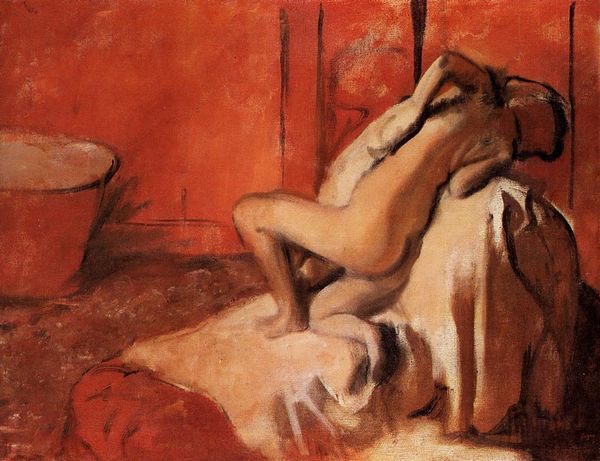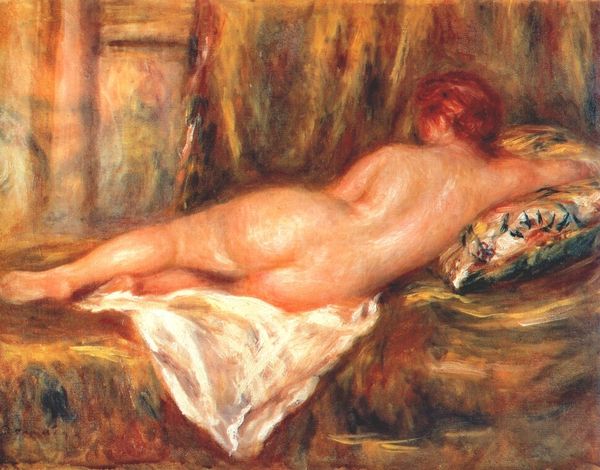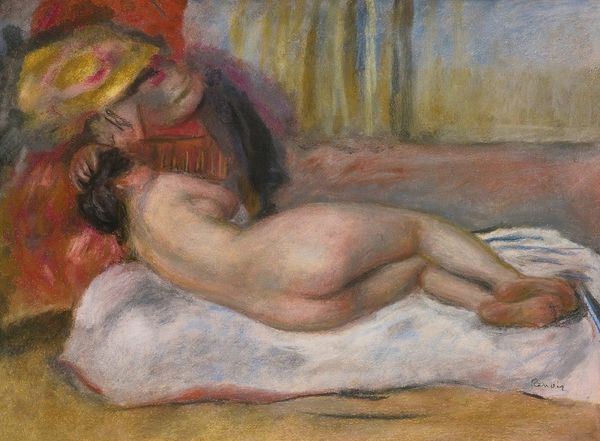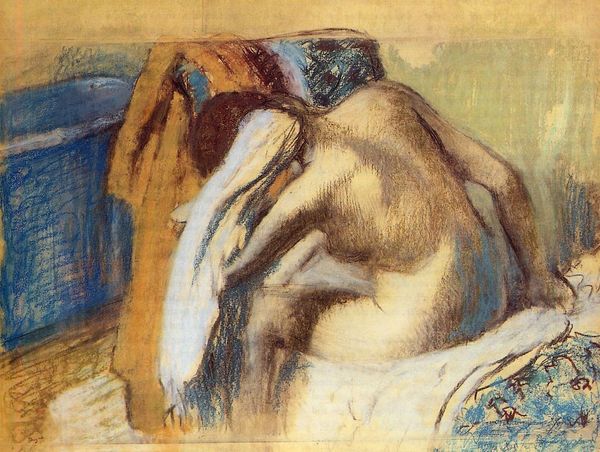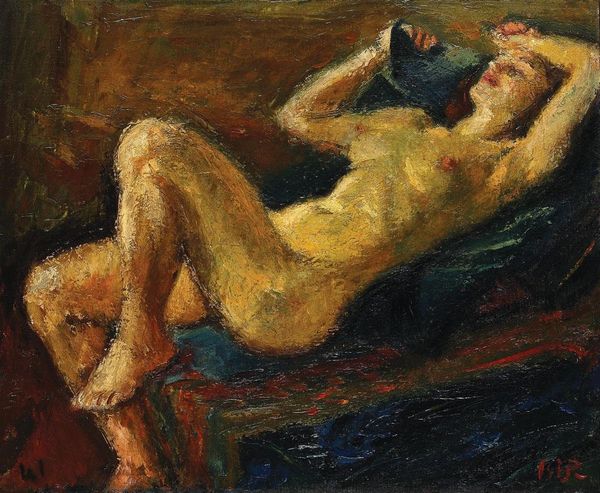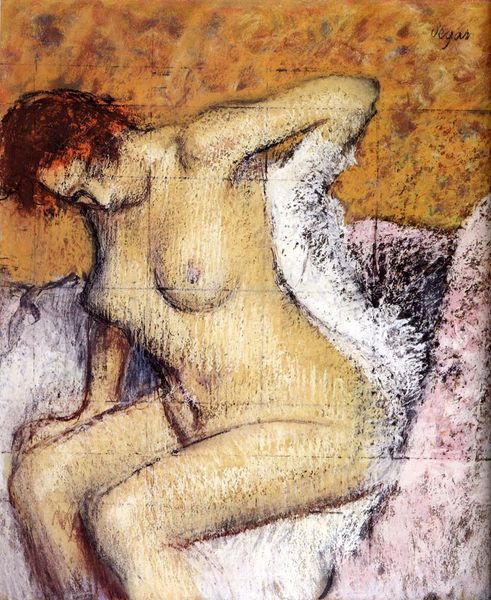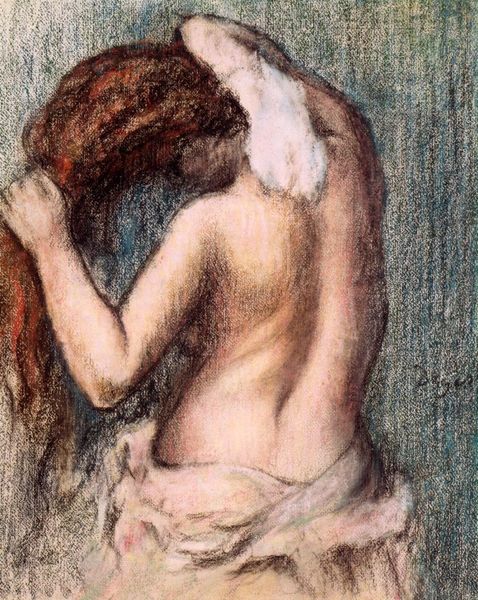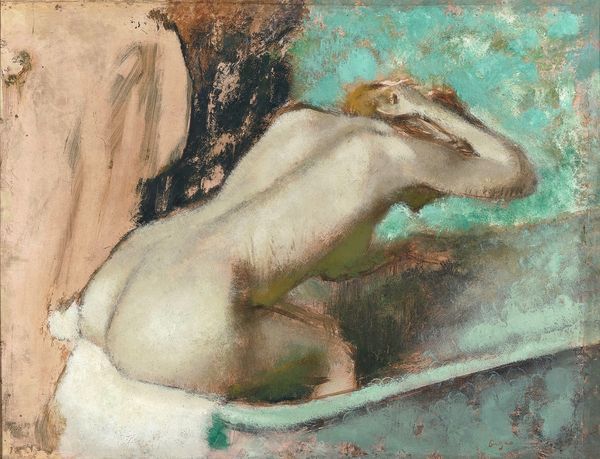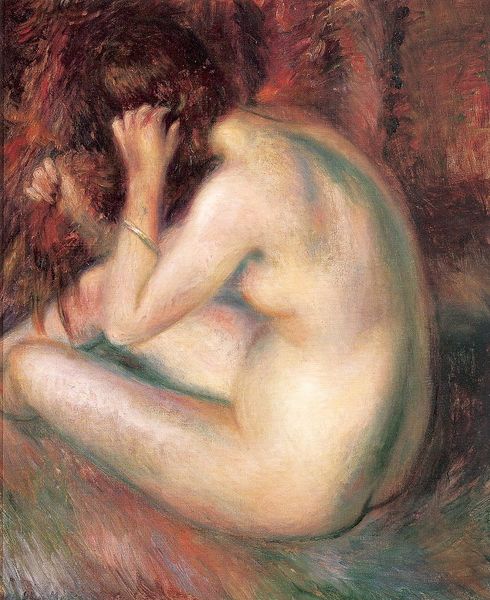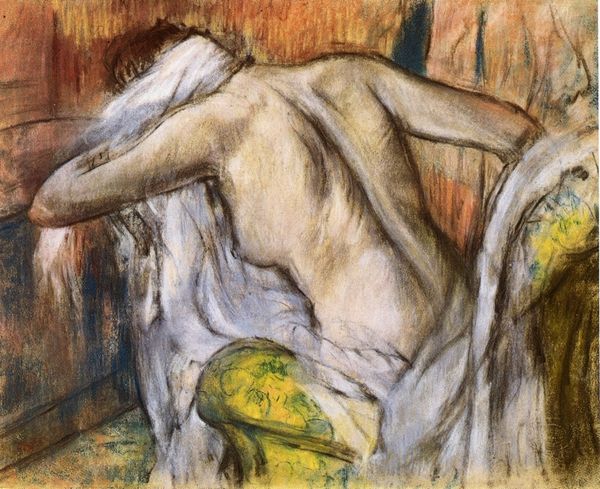
Copyright: Public domain
Edgar Degas's painting, After the Bath, uses oil paint to capture a private moment. Degas wasn't interested in traditional fine art materials, or the skilled traditions that dominated the art world. The materiality of oil paint allows him to build up layers of color and texture, creating a sense of depth and form. It's interesting how Degas applies the paint in loose, visible brushstrokes. This adds to the intimacy of the scene, as if we're glimpsing a fleeting moment. This approach to the medium is significant. Instead of striving for photorealistic perfection, he embraces the inherent qualities of the paint itself. The unblended strokes almost resemble textiles, in a way that emphasizes the labor-intensive nature of traditional art forms. The painting challenges conventional distinctions between fine art and craft, and highlights the importance of material, process, and context in understanding its full meaning.
Comments
No comments
Be the first to comment and join the conversation on the ultimate creative platform.
